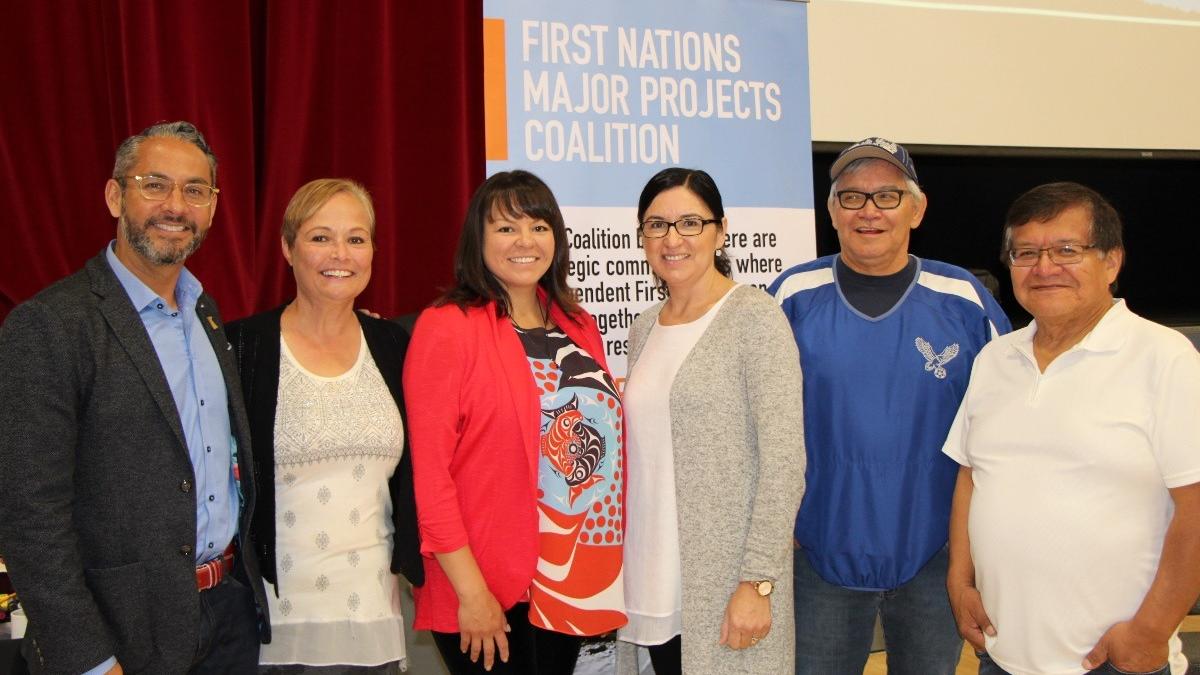Indigenous groups seeking ownership stakes on high profile Canadian pipeline projects have become something of a recent trend, with Indigenous-led bids for the Trans Mountain pipeline expansion and Keystone XL generating headlines.
British Columbia’s Coastal GasLink project is about to get its day in the spotlight thanks to the First Nations Major Project Coalition (FNMPC), which is supporting members interested in securing ownership in the natural gas pipeline project, slated to be completed in 2022.
The FNMPC is a not-for-profit organization that was formed in 2017 whose membership now represents 60 First Nations in every province from B.C. to Ontario. The FNMPC offers neutral capacity building expertise, from governance to engineering/technical, to First Nations within their membership who wish to engage in major projects across Canada, like Coastal Gaslink.
Seeking a 10 per cent equity stake in the 670-kilometre pipeline, twelve First Nations across Northern B.C. have been involved in discussions for nearly two years since TC Energy announced it would be selling up to 75 per cent of the $6.6-billion pipeline project in January 2019.
While it is the group of twelve First Nations — referred to as the CGL First Nations Limited Partnership — that is leading the negotiations in securing this equity position, Chief Clayton Pountney of the Lhiedli T’enneh First Nation acknowledged the important role FNMPC has played in the transaction.
“With the help of FNMPC, the community-driven approach to establishing the governance of the CGL First Nation Limited Partnership have ensured community leaders are in control of the decision making,” says Pountney.
With the first pipe in the ground after a successful summer construction season, First Nations along the line have turned their focus in securing a “set-aside” portion of equity in the pipeline that will run from Dawson Creek to Kitimat, after commercial talks on a larger stake in the project broke down after the group hit a common barrier faced by First Nations.
“We were very disappointed when this group of First Nations couldn’t secure a cost of capital that would enable them to continue in the open bid process,” said Niilo Edwards, executive director of the FNMPC.
“It has been this issue over and over [of limited access to capital] that has created barriers to Indigenous economic growth which has only heightened the FNMPC resolve in breaking down these barriers for future major project opportunities.”
Coastal GasLink has already seen $825 million worth of Indigenous and local contracting awarded and underway in the region, with up to $1 billion expected once the project is completed. But it is the equity component that would see benefits from the pipeline extended past the construction phase to participating First Nations.
In May 2019, Kohlberg Kravis Roberts (KKR) and Alberta Investment Management Corporation (AIMCo) purchased 65 per cent of the pipeline for a conglomerate of investors from TC Energy, which left the 10 per cent equity portion remaining for the twelve First Nations to purchase.
“We are an organization that supports its members in offering independent, trusted, and unbiased advice in support of projects members are interested in, regardless of industry,” says Edwards.
Nothing demonstrates that commitment more than the portfolio of projects the FNMPC says they are currently supporting – everything from electricity transmission and hydroelectric power generation, to environmental studies, and renewable energy projects, including the ground breaking, 100 per cent Indigenous-owned Clarke Lake Geothermal project in Northeastern British Columbia.
